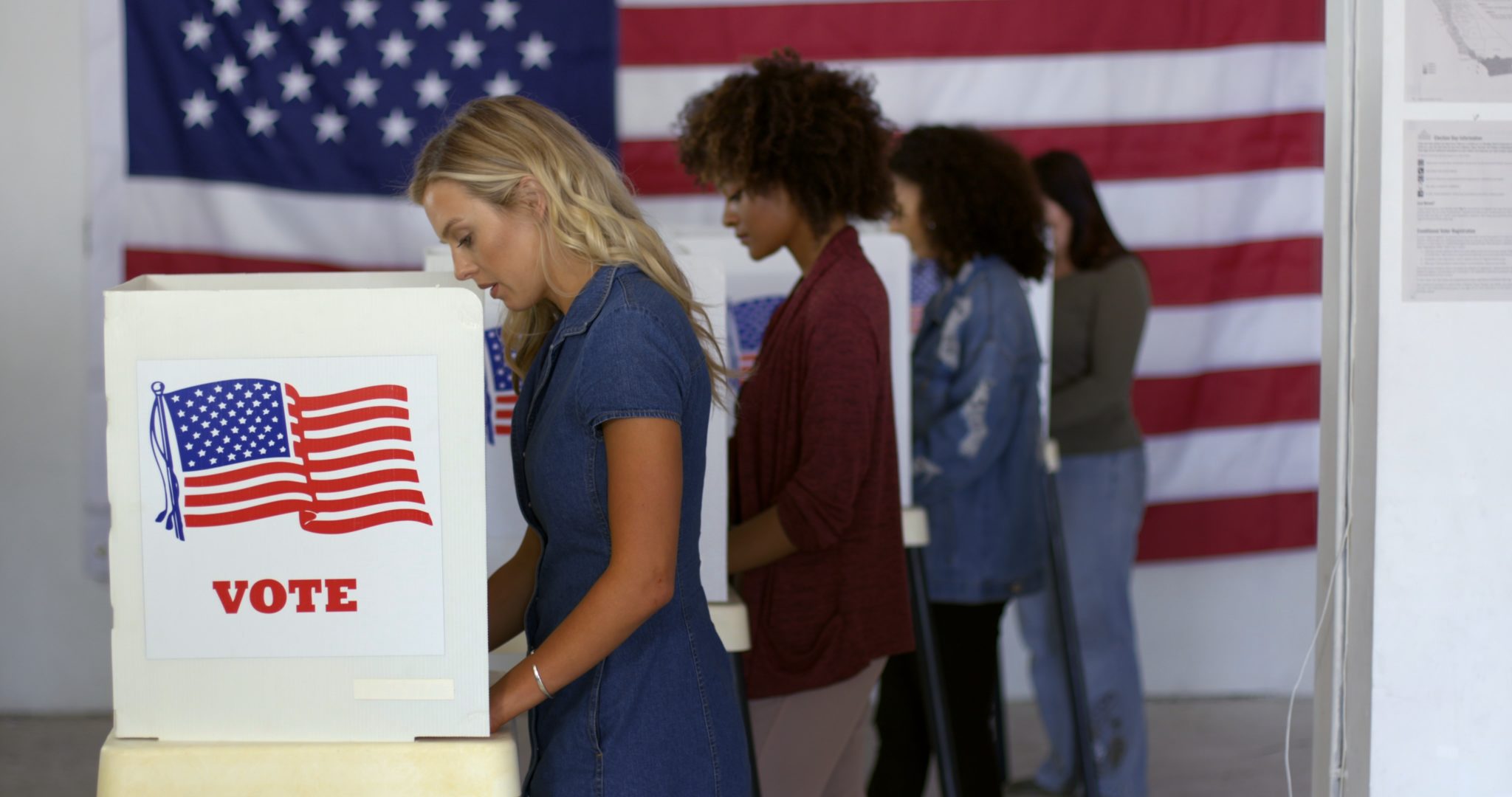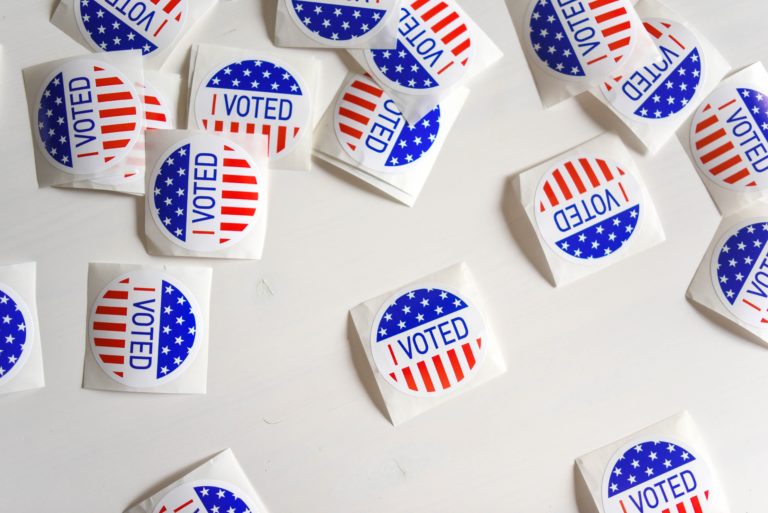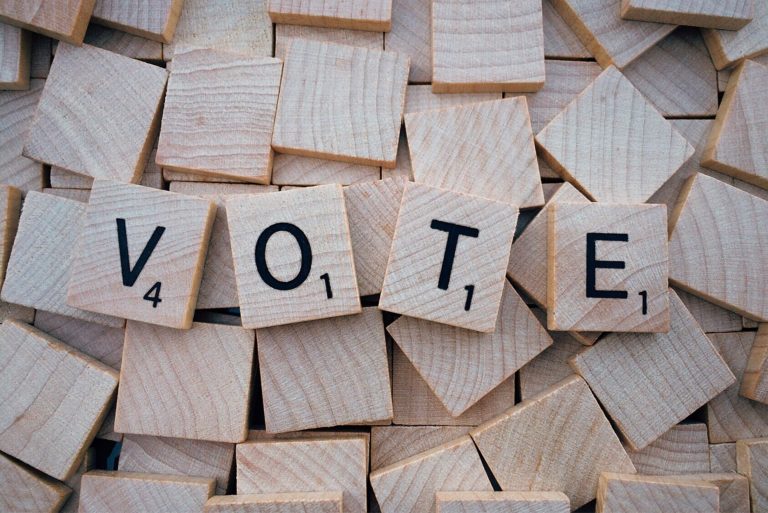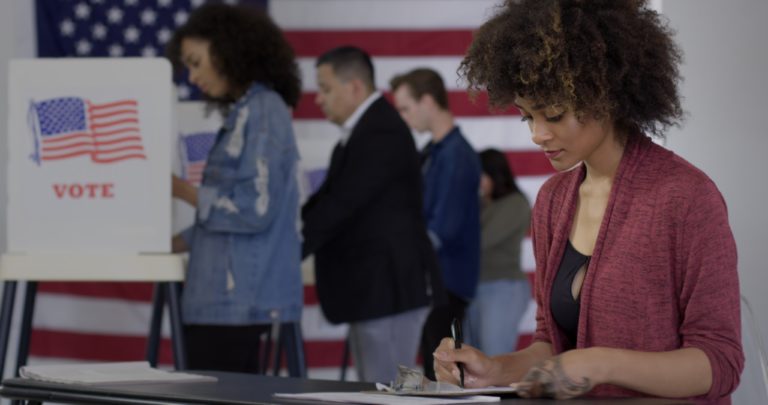On July 19, 1848, over 300 (mostly) women gathered for the Seneca Falls Convention,…
New Research Shows Motivation Gap Among Young Women Voters

2020 was a landmark year for youth voter turnout and engagement, with over 50% of young voters casting a ballot. Youth turnout has been increasing steadily over the last several elections. However, All In Together’s new polling, just conducted in September 2021, shows a massive decrease in enthusiasm – younger voters are the least motivated age group to vote: only 35% of 18–29-year-old voters are very motivated to vote, and only 28% are almost certain to vote next year (compared to 52.9% and 51.2% respectively for the overall electorate).
Our 2020 polls found young voters, especially young women, felt strongly that their vote and their participation were extremely important in the 2020 elections. In our May 2020 poll, 82% of 18–29 year-old women said their vote mattered now more than ever to ensure the country goes in the right direction, and 73% said their political participation mattered more than ever to protect the country and their families. In the same poll, 51.6% of 18–29 year-old women said they were almost certain to vote in November 2020.
Groups that engage young voters will likely see the sharp decline in motivation between 2020 and 2021 as a worrying sign, especially since midterm elections typically see a much lower turnout than Presidential election years. According to Census data, youth turnout in midterm elections was 36% in 2018 and 20% in 2014.
The decline in youth motivation to vote may have more of an effect on turnout for Democrats. Our polls found that 18–29 year-old voters are more likely to be registered Democrats than any other age group. 55% are registered Democrats, 25% registered Republicans, and 20% registered Independents vs. 46% Democrats, 35% Republicans, and 19% Independents for the overall electorate. They are the only age group where both men and women favor Democrats.
CIRCLE (Center for Information & Research on Civic Learning and Engagement) at Tufts University finds that the best strategy to engage young voters is starting early, using peer-to-peer outreach, and focusing on the issues that young voters care deeply about. In our September 2021 poll, we found that COVID-19 is the most important issue in the midterms for voters under 30 (24.3% for women, 20.9% for men), followed by abortion for women (13.1%), and rising prices, and climate change for men (17.6% and 16.5%). While COVID-19 was the number one issue among all demographic groups, there are generational gaps around the importance of both climate change and abortion. Only 9% of adults overall said climate change was their most important issue in the midterms, and only 7% of adults and 8% of women said abortion was most important to them.
Young voters are currently using climate marches and rallies to galvanize, and pressure elected representatives to keep climate priorities in the Infrastructure and Reconciliation bills. And we’ve seen similar efforts in recent months among women’s marches and rallies against the Texas abortion ban. But this action and energy may not transfer to the ballot box if candidates do not talk or act on these issues and the others that motivate young voters. As All In Together continues our polls throughout the midterm election season, we will continue to watch how young women’s motivation and engagement changes and look at the strategies and issues that inspire them. You can learn more about the survey methodology and the findings from our recent poll at https://aitogether.org/category/polling/.






